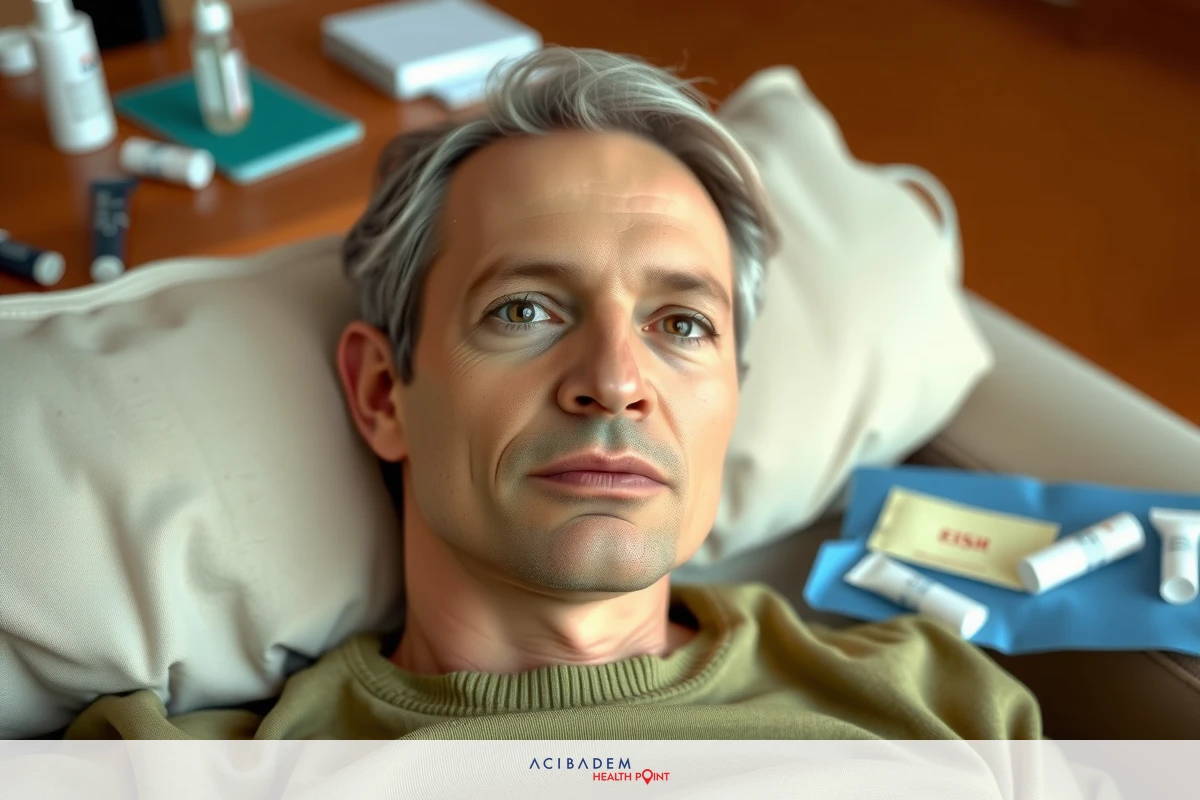Can You Scratch Your Nose After Rhinoplasty
Rhinoplasty requires careful postoperative care. Among many questions that patients often have is whether scratching their nose after the procedure might cause harm. This query may seem simple but it carries weight as improper care could lead to complications and impact recovery time.
Understanding the nuances of post-operative instructions can be critical in ensuring a smooth healing process. While it’s natural for one to feel an itch or discomfort following surgery, resisting the urge to scratch is advised by most medical professionals. The reasons behind this caution along with some tactics to manage any discomfort without causing damage are worth exploring.
The intention here isn’t just about providing guidelines on what not to do after rhinoplasty; instead, it’s also about helping you navigate through your recovery journey as comfortably and effectively as possible. Remember, when in doubt or facing any concerns during recuperation from rhinoplasty, reaching out to your surgeon should always be your first step.
Postoperative Care
Postoperative care after rhinoplasty is a multifaceted journey. The initial healing process involves managing discomfort, monitoring symptoms, and resting to expedite recovery. You may experience an itch or feel the urge to scratch your nose but it’s essential to resist this instinctive reaction. Scratching can potentially damage the surgical site causing unnecessary complications that could prolong the healing process.
Instructions provided by your surgeon during postoperative care are crucial guidelines designed with your best interests in mind. They aim at protecting you from potential risks and ensuring optimal outcomes of the surgery. Abstaining from scratching your nose is not merely about comfort; it safeguards against infections, reduces swelling more quickly, and minimizes scarring – all key factors in achieving successful results from rhinoplasty.
Adherence to these post-surgery instructions also contributes significantly towards reducing any chance of further complications such as nasal obstruction or difficulty breathing due to internal swelling caused by frequent touching or scratching of the nose area. It’s paramount for patients undergoing rhinoplasty not only understand these ramifications but also actively follow through with their surgeon’s advice on postoperative care.
Avoiding Nose Scratching
One of the more challenging aspects following rhinoplasty is dealing with the urge to scratch your nose. Itching is a common occurrence after any surgical procedure and can be attributed to various factors such as healing tissues, dried blood, or even just the simple reaction to having had surgery. The key here lies in understanding that scratching can lead to complications – an action seemingly harmless but potentially detrimental.
Patients often wonder why something as commonplace as scratching could pose risks post-rhinoplasty. The answer lies within our body’s natural healing process; when we scratch an itch, we risk disrupting this process by causing potential harm to delicate structures beneath the skin’s surface that are still recovering from surgery. In addition, repeated touching of your nose might also inadvertently introduce bacteria leading to infection – another reason why resisting the urge becomes crucial during recovery.
To alleviate discomfort without resorting to scratching, there exist several alternatives worth exploring. Cold compresses applied around (not on) your nose area may help soothe itching sensations while keeping swelling under control. Likewise, ensuring you keep yourself adequately hydrated can prevent dryness which often

exacerbates itching feelings. Lastly but importantly – patience plays a pivotal role too! With time and proper care, these sensations will eventually subside marking progress in your recovery journey from rhinoplasty.
Consult Your Surgeon
Rhinoplasty, like any surgical procedure, can lead to a range of experiences during the recovery period. Each individual’s journey is unique, and therefore questions or concerns are bound to arise – one such common concern being whether it’s safe to scratch your nose post-surgery. In moments of discomfort or uncertainty, reaching out to your surgeon should be an immediate course of action.
Your surgeon possesses a comprehensive understanding of your particular case – from the complexities involved in the surgery itself right down to tailored postoperative care instructions designed for you. They hold invaluable insights into what’s normal during recovery and what might warrant further attention. Therefore, consulting them when faced with issues such as persistent itching or other unexpected symptoms ensures that you receive accurate advice based on their expertise.
Remember that no question is trivial when it comes to your health and wellbeing after rhinoplasty. Whether it revolves around scratching your nose or any other aspect related to recovery – always consult your surgeon without hesitation. Open communication between patient and healthcare provider not only facilitates better understanding but also fosters trust – both integral components towards achieving successful outcomes from rhinoplasty.
Frequently Asked Questions
Q: Why does my nose itch after rhinoplasty? A: Itching is quite a common occurrence following any surgical procedure. As your body begins the healing process, tissues regenerate leading to sensations of itching. Additionally, factors like dried blood or simply being aware of the recent surgery can also contribute to this feeling.
Q: What are some alternatives to scratching my nose post-rhinoplasty? A: There are several measures you can take to alleviate discomfort without resorting to scratching. Using a cold compress around (not on) your nose area can help manage itching and swelling; staying hydrated prevents dryness which often exacerbates itching; and patience plays an integral role as these sensations will subside with time and proper care.
Q: Can I cause harm by scratching my nose after rhinoplasty? A: Yes, indeed! Despite how harmless it may seem, scratching could lead to potential complications such as damaging healing structures beneath the skin’s surface or introducing bacteria that might lead to infection – making resisting this urge crucial during recovery.
Q: When should I consult my surgeon during recovery from rhinoplasty? A: Anytime you have questions or concerns – be it about scratching your nose, dealing with persistent discomfort or anything else related to your recovery – don’t hesitate in reaching out. Your surgeon holds invaluable insights into what’s normal during recovery and what might warrant further attention.








